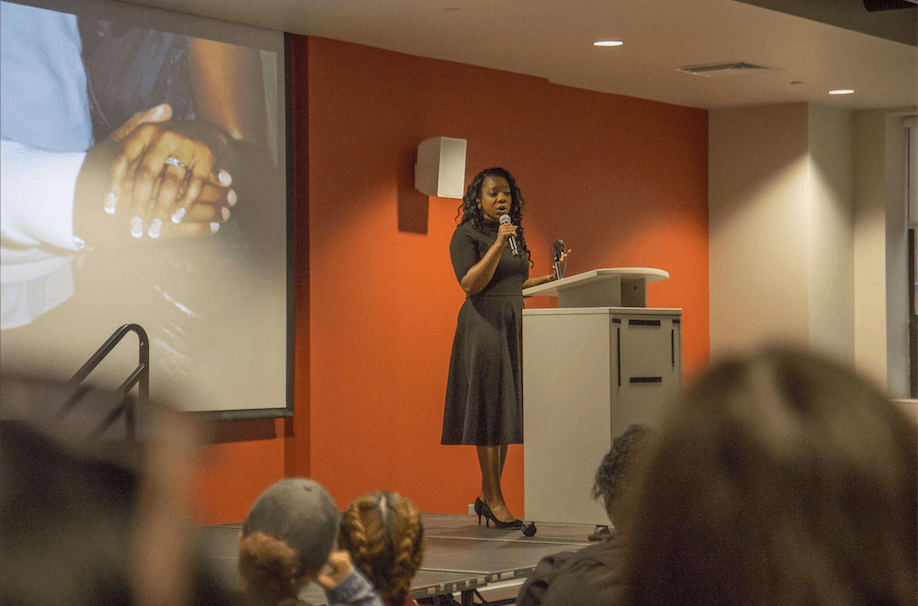by The Cowl Editor on April 26, 2018
Opinion

“Imagine falling in love and being happy, and then something goes terribly wrong,” said Beverly Gooden to a room full of Providence College students in Moore Hall. Understanding the trauma of domestic violence is nearly impossible except if you yourself are a victim of abuse. It is easy to see two people who seem so devoted to one another and to never have any idea of what the real story is.
Last Wednesday, Gooden, who started the #WhyIStayed movement on Twitter, spoke to an audience about her own experience with an abusive partner and how she managed to escape. Perhaps one of the most important takeaways from her talk was the emphasis on victim blaming.
Whenever we witness or hear about abusive relationships, the question is always “Why don’t they just run away?” or “Why don’t they leave?” as though walking away from the person who hurts you emotionally, physically, or verbally on a daily basis is that simple.
Placing blame on the victim absolves the abuser entirely of responsibility. It normalizes not only their abusive actions, but their harmful behavior as well. The question is always “why did they stay?” when it should have been “why did their partner hurt them?”
The position of blame in abusive relationships defines the manner in which abuse is discussed. If we standardize the treatment of abusers to their victims, then victims will also start to standardize this treatment. If they are punished for something as straightforward as not doing the dishes, then they might truly believe they are worthy of abuse. If an abuser tells the victim that he or she is doing something wrong, he or she will believe it without question.
When we see an abusive relationship, it is easy for people who are removed from the situation to point fingers and to try to provide a solution. But abuse is not transparent.
“I believed him every time he said he was going to change,” Gooden said about her ex-husband. To someone who has never been in that kind of relationship, this statement might seem unbelievable. But we have to remember that victims of abuse are usually in love with the perpetrator, and often times feel very dependent on them.
If we want to put a stop to sexual assault and domestic violence, we need to shift the conversation away from victim blaming. When the victim is condemned, they feel guilty for any resentment towards their abuser, or maybe even for attempting to escape the situation.
Trying to leave an abusive relationship is much more difficult than it appears on the surface. Not only could it be physically impossible, but it might also be emotionally draining for the victim. If they are in love with the offender, they may feel a strong attachment to them and do not ever want to disappoint them. In some cases the abuse could even escalate if they try to escape.
If you know someone who is or has been in abusive relationship, remember that the fact that they are staying is never their fault. Our efforts should instead be directed towards actually helping them to get out of the relationship in the safest way possible. Ideally, there will be a day where no one ever has to explain why they stayed.